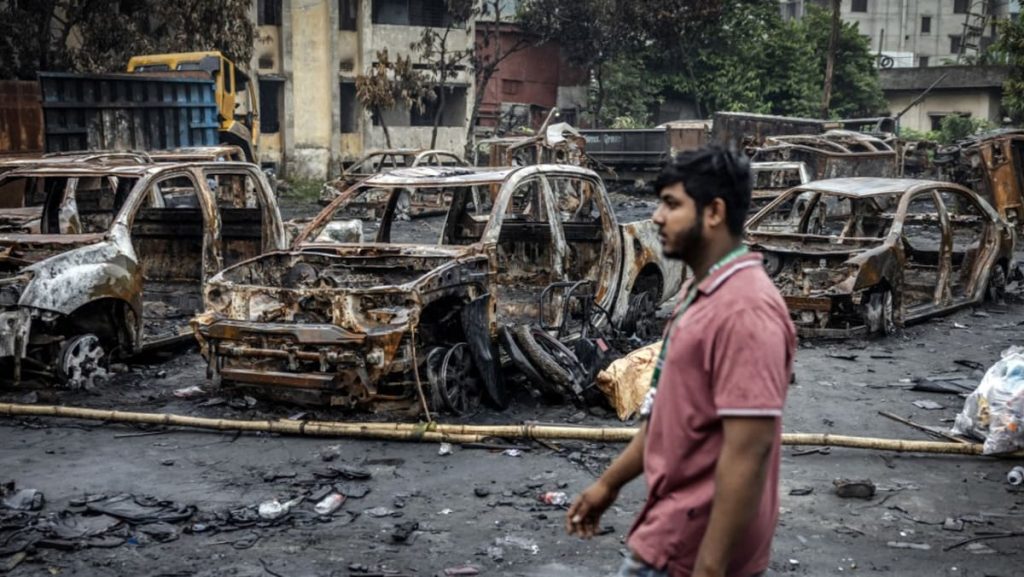After the abrupt resignation and flight abroad of autocratic ex-premier Sheikh Hasina, Bangladeshi police in the capital Dhaka had gone on strike, leaving a vacuum in law and order. The police had been heavily involved in cracking down on the protests that led to Hasina’s departure, resulting in numerous casualties including 42 officers. The police demanded guarantees for their safety before returning to work, but ultimately resumed patrols after discussions with the new interim government led by Nobel laureate Muhammad Yunus.
Student-led protests against the Hasina government had been mostly nonviolent until the police attempted to disperse them forcefully. This led to a series of violent attacks on police stations and officers, resulting in over 450 deaths. The national police union reported that up to 450 out of the country’s 600 police stations had been targeted in arson and vandalism incidents. The army stepped in to guard the stations that were reopening, as they had largely abstained from participating in the violent crackdown.
In the absence of the police, the students who led the protests took it upon themselves to restore law and order, acting as traffic wardens, forming neighborhood watch patrols, and protecting places of worship. They were able to quickly settle the unrest that followed Hasina’s departure, which included looting and reprisal attacks. The students’ efforts to maintain order in the city of Dhaka were praised by many for their effectiveness in keeping the peace during a turbulent period.
The sudden shift in power in Bangladesh created a power vacuum that left a significant impact on the security and stability of the country. The ouster of Sheikh Hasina after 15 years of rule sparked a chain of events that led to violence and unrest in the capital city. The police’s decision to strike further complicated the situation, leaving the citizens vulnerable to lawlessness until law enforcement agencies were able to resume their duties under the new interim government.
The involvement of Nobel laureate Muhammad Yunus in leading the new government provided a sense of credibility and hope for a smooth transition of power in Bangladesh. His role in negotiating with the police to end their strike and resume patrols in the capital was crucial in restoring a semblance of normalcy in the city. The students’ initiative to maintain order in the absence of the police demonstrated a strong sense of community responsibility and resilience in the face of adversity.
Overall, the events that unfolded in Dhaka following Sheikh Hasina’s resignation highlighted the fragility of power structures and the importance of maintaining law and order in times of transition. The actions of the police, students, and army in responding to the crisis showcased the complexity of governance and the role of various stakeholders in preserving peace and stability in the country. The aftermath of these events will likely shape the future political landscape of Bangladesh and influence the way power is exercised and maintained in the years to come.


